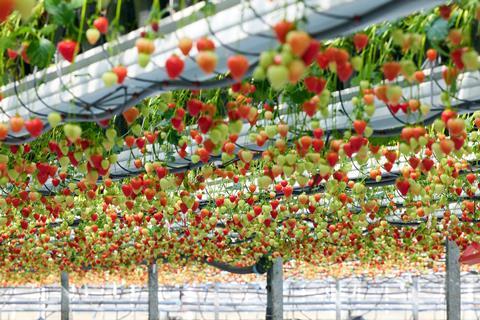Green Energy Solution will enable the production of glasshouse strawberries in the UK during winter months
The Summer Berry Company (TSBC) is challenging the official British berry season by preparing to offer its customers with a year-round supply of strawberries sustainably produced in the south of England.

The shift from seasonal reliance (normally from April to October) to continuous production will be made possible after the identification, adoption, and investment in an energy solution to produce heat and electricity for 16ha of TSBC’s glasshouse site located in Chichester.
TSBC engaged with Ebtech Energy Systems, a specialist in decarbonisation of heating and cooling, to develop a Green Energy Solution (GES) that will reduce the site’s reliance on fossil fuels and incorporates a Combined Heat and Power (CHP) plant, a state-of-the-art combined water/air source heat pump, a site-wide heat network and LED lighting.
A two million-litre heat storage vessel will be incorporated into the heat network, further displacing gas boiler heating, and also allowing TSBC to benefit from providing “demand side response” capability to the electricity grid. Once it is operational in September, the GES will reduce overall spend on energy by around 40 per cent, cut CO2 emissions by 20 per cent, and allow the site to provide extensive additional lighting to the crop in winter, TSBC said.
The project represents another step towards decarbonising the operations at the site, with projected carbon saving of a further 1,300 tonnes annually. It runs in parallel to other long-term initiatives already in place, including solar and wind power solutions, which will allow the site to reach net zero, a target TSBC is aiming to achieve by 2030.
“We were looking for an energy solution that would be both financially and environmentally sustainable and by partnering with Ebtech we were able to find that,” said Bartosz Pinkosz, operations director at TSBC in the UK.
TSBC’s CEO, David Sanclement, commented: “This solution tackles UK-based retailers’ concerns regarding the fruit quality of imported strawberries during winter, which in turn proves to be a more sustainable option, as it reduces the carbon footprint of transport”.



